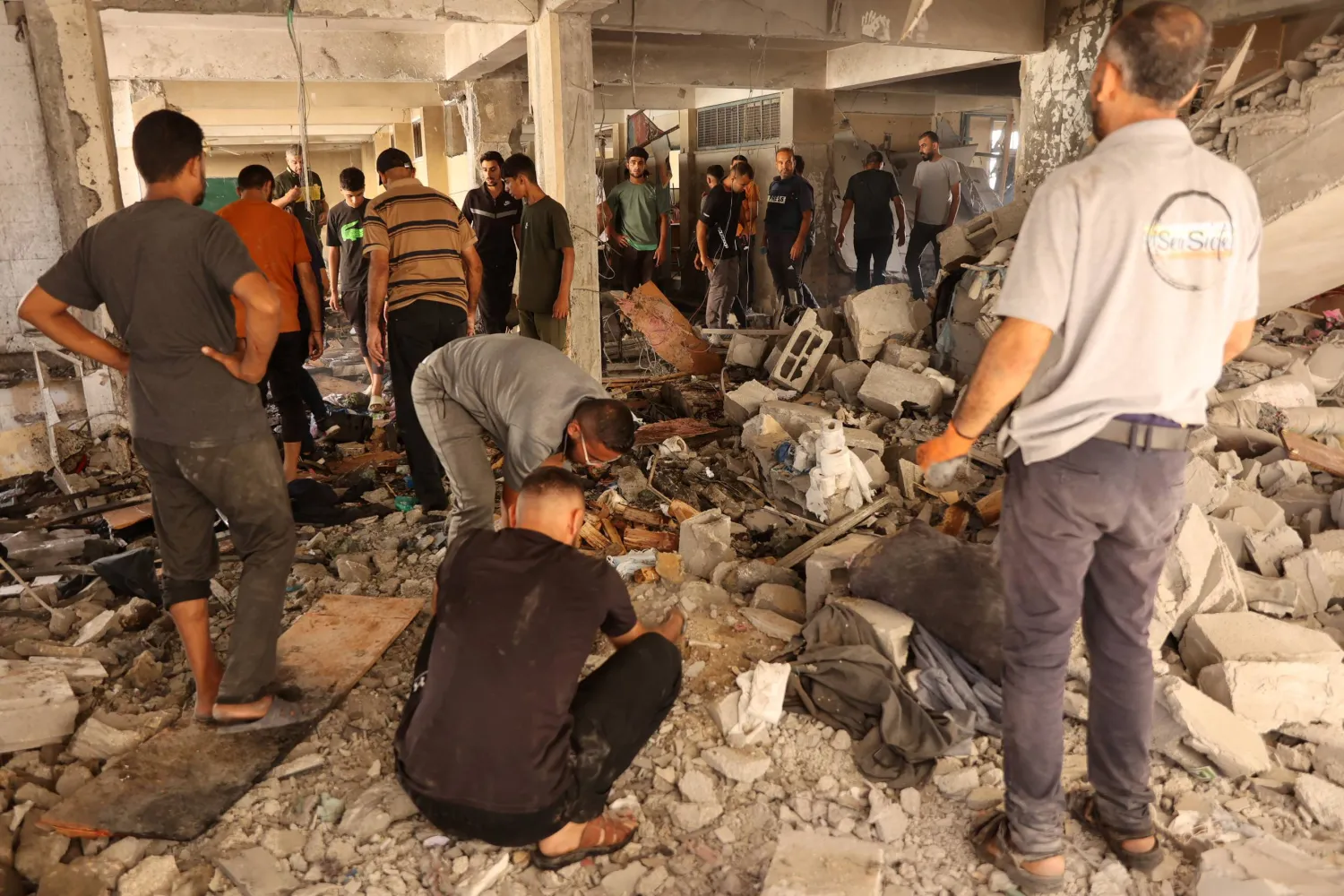An Israeli airstrike killed seven people in a school sheltering displaced families in Gaza City on Sunday, Palestinian health officials said, with the Israeli military saying it had targeted militants operating from the compound.
The strike hit Kafr Qasem School in Beach camp at around 11 a.m. (0800 GMT), the officials said. Among those killed was Majed Saleh, the director of the Hamas-run Public Works and Housing ministry, they added.
Israel's military said the strike targeted Hamas fighters there, and that it had used aerial surveillance and taken other steps to limit the risk to civilians, reported Reuters.
Hamas, the militant group that rules Gaza, has regularly denied Israeli accusations that it uses hospitals and other civilians buildings for military purposes in the near year-old war.
The attack and other reported violence in Gaza came amid a surge of strikes further north between Israel and the Iran-backed forces of Hezbollah across the border with Lebanon - a parallel conflict that had stoked fears of wider regional unrest.
Six other Palestinians were killed in separate airstrikes in central and southern parts of Gaza, the medics said. They put the number of Palestinians killed in Israeli strikes so far on Sunday at 16.
In Rafah, near Gaza's border with Egypt, residents said Israeli tanks advanced towards the western parts of the city, where the army has operated since May, and took positions over some hilltops overseeing the coastal road.
Israel's demands to keep control of the southern border line between Rafah and Egypt have been a major sticking point in international efforts to conclude a ceasefire deal between Israel and Hamas.
Hamas's armed wing said fighters have mounted several attacks against Israeli forces in Rafah, firing anti-tank rockets and detonating bombs in houses where Israeli troops had taken positions.
In a statement on Saturday, the Israeli military said forces, operating in Rafah since May, have killed dozens of militants in recent weeks and dismantled military infrastructure and tunnel shafts.
On Sunday, Gaza's health ministry warned that all services in all hospitals could halt in 10 days because of the shortages in essential spare parts, and oil needed to operate the fuel-powered generators.
Adding to the turmoil and misery, heavy rain flooded tent encampments overnight.
"Ten minutes of rain were enough to sink the tents. What if it rained all day? Tents are already worn out and can't stand winter," said Aya, displaced with her family in the central city of Deir Al-Balah, where around a million people are sheltering.
"We don't want new tents. We want the war to end. We don't want temporary solutions in hell," the 30-year-old told Reuters via a chat app.
More shelters and supplies to help people cope with the coming winter were needed, Juliette Touma, Director of Communications of the UN Palestinian refugee agency UNRWA, said.
"With rain and temperatures dropping, people are likely to fall ill especially children who are most vulnerable to colds and flu," Touma told Reuters.
This war in the decades-old Israeli-Palestinian conflict was triggered on Oct. 7 when Hamas attacked Israel, killing 1,200 people and taking about 250 hostages, according to Israeli tallies.
Israel's subsequent assault on the enclave has killed more than 41,300 Palestinians, according to the local health ministry, and displaced nearly the entire 2.3 million-strong population.
Israeli Strike Kills Seven in Gaza School Compound

Palestinians inspect the damage at the site of an Israeli strike on a school housing displaced Palestinians in Gaza City's Zaytoun neighborhood on September 21, 2024. (Photo by Omar AL-QATTAA / AFP)

Israeli Strike Kills Seven in Gaza School Compound

Palestinians inspect the damage at the site of an Israeli strike on a school housing displaced Palestinians in Gaza City's Zaytoun neighborhood on September 21, 2024. (Photo by Omar AL-QATTAA / AFP)
لم تشترك بعد
انشئ حساباً خاصاً بك لتحصل على أخبار مخصصة لك ولتتمتع بخاصية حفظ المقالات وتتلقى نشراتنا البريدية المتنوعة







